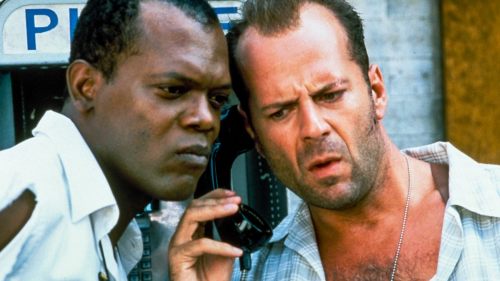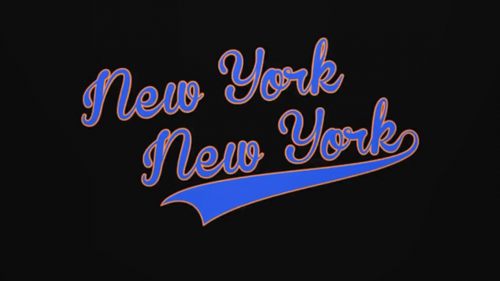Sunday Reads: God Is Black - MALCOLM X At 25
"Unless you are black, you do not know what it means to be a black person in this country."
That was Spike Lee's reasoning as to why he was so publicly outspoken regarding Norman Jewison (In the Heat of the Night ['67]) potentially directing the biopic of black leader Malcolm X. He's not wrong. Handing this movie over to a white filmmaker - regardless of his history helming two separate pictures revolving around racial injustice (the second being A Soldier's Story ['84]) - would've ended up with a viewpoint that wasn't necessarily authentic. That's not to say Jewison couldn't make his own great movie out of Malcolm Little's life, only it almost certainly wouldn't ring out with the same brand of bombastic truth that Lee's emanates. Some stories just need to be told by those whose experiences are closest to it.
However, the battle for control over Malcolm's life started way before Spike was slamming Jewison in the papers. The screenplay - credited to Lee and Arnold Perl once Malcolm X finally hit screens in '92 - is based on The Autobiography of Malcolm X: As Told to Alex Haley. Published in '65 - less than a year after Malcolm was shot down in front of his people - the rights were purchased by producer Marvin Worth two years later (and seven before Worth helped bring Bob Fosse's Lenny ['74] to the big screen). Worth had known X when he was still Little - a drug dealer in Michigan who went by the name Detroit Red (Malcolm had many monikers over the course of his existence). "Red" came from the color of Malcolm's hair, which had been straightened to look "white"; a defining feature that paired well with his loud suits and flashy lifestyle. Though the glasses and speeches had become X's calling card decades later, the hustler was who Worth remembered best.
The earliest iteration of a script that Worth commissioned was penned by I Am Not Your Negro author James Baldwin, one of the great poets and writers documenting the experience of Black America (who also counted Malcolm and Martin Luther King Jr. as personal friends). But Baldwin quickly became frustrated by the numerous changes Worth and the studio (originally Columbia Pictures) demanded. There was to be no political leanings when representing Malcolm's pilgrimage to Mecca - a moment the leader often confessed to being the most moving and molding of his life. Baldwin was also asked to play up Malcolm's conflicts with black members of the Muslim community, and excise certain moments that painted white establishment figures as overly racist or distrustful of African-Americans. According to Baldwin, Columbia believed “the tragedy of Malcolm’s life was that he had been mistreated, early on, by some whites, and betrayed (later) by many blacks.” For him, this simply wasn't true. He left the project in '69.
Enter Arnold Perl (Cotton Comes to Harlem ['70], Jewison's Fiddler On the Rood ['71]) , who then sat down behind the typewriter. Though he was a white man, Perl at least had some experience with being persecuted by the government, as he'd been a Blacklisted Jew during the McCarthy era (who also went on to direct the documentary Malcolm X ['72], posthumously receiving an Oscar nomination). Worth also hired acclaimed African-American scribes like David Bradley and Charles Fuller to take a crack at the script, not to mention Calder Willingham, whose work on The Graduate ('67) made Worth and others overlook the fact that he was whiter than snow. David Mamet - whose political views don't exactly align with Malcolm's - turned in a draft at one point that Worth labeled "David Mamet's version of the Civil Rights Movement." (Yikes.) After Lee had allegedly ousted Jewison from the project with his comments (a theory Lee waves off, claiming "hundreds" of letters were being written to the studio each day), he operated off of Worth's 250-page tome, drafted by Baldwin and Perl (though Baldwin's Estate requested his name be removed due to the numerous changes).
Spike Lee's Malcolm X delivers the man in all his various forms, beginning with both the hustler, Detroit Red, and Malcolm Little, the son of a Nebraska preacher who was murdered in cold blood by the local chapter of the KKK. The first thirty minutes cross-cut between big, boisterous throwback filmmaking - almost in the style of a zoot suit musical, presented by some fictitious Afro-American Stanley Donen - and soft-focus remembrances of the indignities Malcolm suffered as a child. To be frank, this initial half-hour is the roughest patch of the picture, and where one supposes the most producer-mandated editing was performed (to help make Spike's original four-hour cut a touch more manageable). It's sloppy and jagged, yet never less than hypnotic, as Lee stages giant musical set pieces, before cutting back to melodramatic hyper-real recollections, narrated by Denzel's much older, wiser Malcolm X.
"Detroit Red" could've also been a gangster movie unto itself, as these segments chronicle the days of a two-bit hustler, never able to rid himself of the white man's influence. The aforementioned hair dye and straightening - a chemically-induced process painfully performed by Red's best friend, Shorty (Lee himself, in possibly his best role outside of Mookie in Do The Right Thing ['89]) - is only the tip of the iceberg in terms of Red's love affair with "whiteness", and its vision for the American Negro. Early on, Red leaves one of his dates on her doorstep, just so he can run back into the very loving arms of Sophia (Kate Vernon), a white woman who eventually becomes his accomplice in a series of burglaries. Cinematographer Ernest Dickerson filters the smoky noir imagery from Humphrey Bogart and James Cagney pictures through Lee's hyper-modern style, resulting in perhaps the most joyously gigantic filmmaking of Lee's career.
Even as Lee elevates Red's dealings with local coke-sniffing small-time thug royalty West Indian Archie (Delroy Lindo) to gigantic levels of spectacle - clueing the audience in to how the production went so far over budget* - it remains Malcolm's story to tell. As the flashbacks become more and more horrific - including the Littles' house being burned down by Klan members and his father's head stuffed onto the train tracks - Malcolm X narrates his tale with the steady voice of a law officer reading down a criminal's series of offenses. Only here, the culprit in question is an entire race of individuals who hate him due to the color of his skin, going to great lengths to terrify young Mr. Little and the rest of his family before riding off like horsemen of the apocalypse, the moon transforming their presence into menacing silhouettes.
After being busted (along with Shorty and Sophia) following a series of break-ins, Detroit Red is now the Prisoner (or "Satan", as he was nicknamed by the other inmates) - a faceless cog in the white man's grey system of "justice" who refuses to take orders, thus leading him to be locked in the hole for weeks at a time. It's in this building made of brick, bars and flesh that he meets Brother Baines (Albert Hall), who systematically deprograms Satan from the miseducation he received in white foster homes and white schools, where he was taught to love his masters and act subservient. Here Satan is transformed into Malcolm X, who questions the prison's pastor (Christopher Plummer) about the blackness of Jesus Christ and God in relation to the white devil's painted depictions of him. God is not the blonde-haired, blue-eyed, fair-skinned ghosts these artists have been instructed to concoct. God is beautiful. God is black.
Upon release, Malcolm X is now the Nation of Islam's most gifted speaker - an orator who can inspire those who have felt the heel of the white devil's boot on the back of their necks with rapid fire speeches that evolve from forcefully distributing literature outside Baptist churches to makeshift podiums in front of an increasingly populated DIY Islamic meeting place. This near hour-long stretch of Denzel's Malcolm becoming the stern, iconic preacher we know is one of the best stretches of filmmaking any director has ever pulled off in the history of the medium. Perfectly sequenced, these wordy blasts build like action beats, until Washington is channeling the clear, concise, poetic manner of Malcolm's finest lectures. At one point, Lee intercuts a scene of X watching news broadcasts where black men are being beaten by the cops, attacked by dogs, and hung from trees, all while his revolutionary notions are overlaid with startling diction. It's a masterful moment; a near perfect mix of recreation, miraculously timed editing, and a monstrous performance.
Denzel's ability to convey the development of Macolm X while still retaining the soul of that boy who knows his daddy got killed in the country by some bad white men is a milestone in the craft of screen acting. With one Best Supporting trophy already under his belt (for Glory ['89]), Washington transforms himself into the many forms of Malcolm, to the point that each chapter of his life feels like they're presenting a slightly different character. But Washington unites them all through pain, plus a burning desire to rid not only himself, but his entire race of the chains these white devils have thrown onto their backs. It's reflective of the man himself, a human interpretation of an icon that's a towering achievement, and wholly exhilarating when, by the end of Lee's film - once Malcolm's final form of el-Hajj Malik el-Shabazz is achieved following his pilgrimage to Mecca - we're with an individual who's totally at peace with the Nation's ultimate betrayal, and accepts his fate as a man free from any idealistic burdens but his own ever-adaptive system.
The story goes: Lee screened the first four-hour cut of Malcolm X to Warner Brothers on April 29, 1992; the very same day a jury acquitted members of the LAPD for savagely beating Rodney King, despite the brutal act being caught on video. Following the subsequent LA Riots, tensions continued to run high in America, and Lee's film opens with the very same video, graphically illustrating that while there's been much progress since the days of Malcolm and MLK, many of the images of white violence against black skin remain the same. On top of the footage, we hear Denzel shouting Malcom's speeches (before ever meeting the man, mind you) letting everyone in the auditorium know that "I'm not American" and "you're not American." All the while, the stars and stripes burn into the shape of an X. In terms of arresting openings, it's probably only beaten out by Rosie Perez dancing to "Fight the Power."
But there's something else going on here, as Lee's announcing (in his usual bombastic, brilliant fashion) that Malcolm X is going to be much more than just a simple history lesson. No, Lee is using this sprawling American epic to connect time periods, and send a message that Malcolm's teachings should be applied to the modern age, not just the Civil Rights Era. If black people are being harassed and tortured, they should rise up and defend themselves, "by any means necessary." As jazz musician Terence Blanchard's haunting mix of horns and strings fills our ears for 200+ minutes, Lee is slowly utilizing the score to march us toward Malcolm's untimely death, only to have Nelson Mandela relay one of his sermons to a classroom of black kids years later. Medium and message are near interchangeable; just as Oliver Stone transformed JFK ('91) from simple biopic to a plea for truth, Lee is begging audiences to take this film out of the theaters and start examining everyday life through Malcolm's glasses.
Yet throughout the whole of Malcolm X, Lee pulls off what seemed impossible on paper (at least by the studio system's unwritten "rules" of filmmaking): he crafts a bona fide epic that's sweeping and grandiose in vision, but intimate in its reflection of the filmmaker's distinct POV. Twenty-five years later, it's a marvel that the movie even exists, as it feels like something New Hollywood would've concocted prior to the coked-out decadence of the '80s and '90s, an opus comprised of pure passion, and produced against all odds. So, while it was probably easy to criticize Lee's rather bullish challenge of Norman Jewison's ability to tell this story in '90 - which, if we're being honest, was just as much an act of self-promotion as it was a declaration of principle - no other auteur could've ever produced a movie as authentically concerned with the preservation of both its central icon and the people he championed.
*Lee and editor Barry Alexander Brown were even locked out of the editing bay by the bond company at one point.



